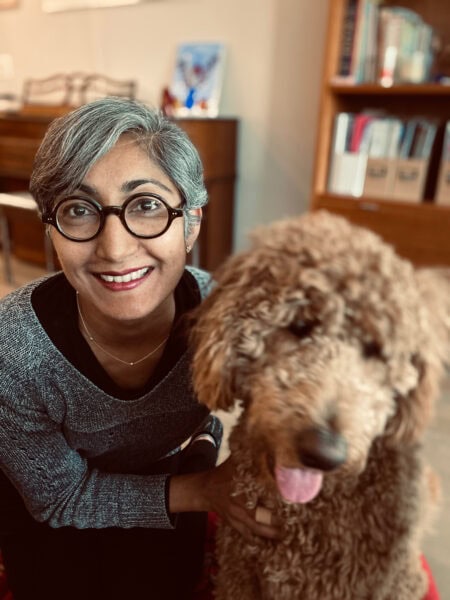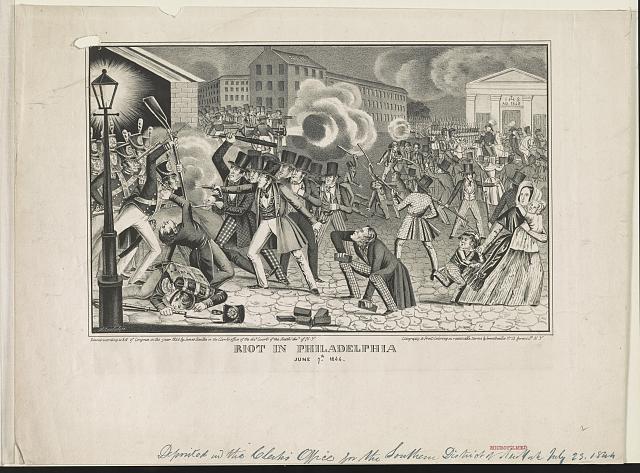Rama Mantena is an associate chair in the Department of History and an associate professor of history and global Asian studies (affiliate) at the University of Illinois at Chicago. She lives in Chicago, Illinois, and has been a member since 2002.

Rama Mantena
Alma maters: BA (English), University of Michigan, 1992; PhD (history), University of Michigan, 2002
Fields of Interest: modern South Asia, British Empire, anti-colonial nationalism, decolonization, public sphere
Describe your career path. What led you to where you are today?
When I went to Ann Arbor to the University of Michigan for my undergraduate studies I immersed myself in literary studies and to the study of the languages of India—Sanskrit, Hindi-Urdu, and Telugu. I then went on to start a PhD in comparative literature (at the University of Minnesota) hoping to delve into a project on Indian literatures. Soon I came to realize that I had a stronger interest in historical studies as I felt in order to understand modern Indian literary practices I had to delve into the study of how colonialism shaped modern South Asia. I then decided to switch to a PhD program in history at the University of Michigan where there was a very dynamic cohort of South Asianists in both anthropology and history. That interdisciplinary dialogue shaped my own exploration of South Asian history and it continues to inspire and animate my projects. Immediately after, I took up a postdoctoral fellowship at the Pembroke Center at Brown University, which was an incredible year of cross-disciplinary dialogue before I entered my disciplinary home of history at the University of Illinois at Chicago.
What do you like the most about where you live and work?
I came to Chicago in 2006 to start my new job at UIC and have never regretted moving to the city nor to take up a job at a university I knew little about until my arrival. I love Chicago and love teaching history here. The students at UIC (and from Chicago) are incredible to teach—a very diverse student body that challenged my assumptions about access and higher education. It is a privilege to be part of our faculty community at UIC which unionized back in 2012 and created an enduring solidarity across colleges at the university.
What projects are you currently working on?
I have just finished the first draft of the manuscript of my current book project tentatively titled Political Imaginaries at the End of Empire that examines anticolonialism, civil liberties, and federation debates in colonial south India. This is a project that took me away from my dissertation research on the late 18th- and early 19th-century colonial Indian practices of history to the early 20th century. It was a challenging project as it delved into the history of princely states in South Asia, their unique political status and in what ways they managed to maintain their autonomy from British India. For my next book project, I am looking forward to immersing myself in the literature on the public sphere and the rise of the social in colonial south India—for which I hope to return to my earlier interest in literary studies.
What’s the most fascinating thing you’ve ever found at the archives or while doing research?
I look back at my time in Indian archives nostalgically when I was conducting dissertation research between 1997–99. With the rise of digital technology, we no longer need to stay for weeks and months in dusty archives with handwritten notes. So more than one specific document or file, I would say that experience of the physicality of the archive is what I found the most fascinating.
What do you value most about the history discipline?
I feel what is most valuable about the discipline of history is how flexible it is and how it allows me to explore a variety of archives, methodologies, and storytelling practices.
Why is membership in the AHA important to you?
I value my AHA membership as it is an incredible organization that brings together historians who teach in schools, colleges, and universities along with those engaged in public history to collectively advocate for the important role that history and historical research plays in our society (starting from our local community to our globally interconnected world).
AHA members are involved in all fields of history, with wide-ranging specializations, interests, and areas of employment. To recognize our talented and eclectic membership, Perspectives Daily features a regular AHA Member Spotlight series.
This work is licensed under a Creative Commons Attribution-NonCommercial-NoDerivatives 4.0 International License. Attribution must provide author name, article title, Perspectives on History, date of publication, and a link to this page. This license applies only to the article, not to text or images used here by permission.



